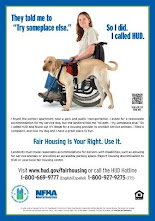The US Department of Justice (DOJ) has announced its finding that Idaho unnecessarily segregates adults with physical disabilities in nursing facilities, in violation of the Americans with Disabilities Act (ADA) and the US Supreme Court’s decision in Olmstead v. L.C. DOJ’s findings, detailed in a letter to Idaho Governor Brad Little, follow a thorough investigation into the state’s service system for people with physical disabilities.
The ADA and the Olmstead decision require state and local governments to ensure the services they provide to people with disabilities are available in the most integrated setting appropriate to individuals’ needs. Community-based services can include assistance with daily activities, like showering or transferring from bed to wheelchair. Without community-based services, Idahoans with physical disabilities have little choice but to enter nursing facilities. Many will remain in those nursing facilities for years or decades, when they would prefer to live in the community. And each year of nursing facility care costs Idaho, on average per person, much more than what Idaho spends serving adults with physical disabilities at home.
According to the DOJ’s findings, 65% of Idahoans in nursing facilities have expressed a desire to live in the community, but 82% did not have an active discharge plan as of October 2024. In Idaho, about 19% of nursing home residents are younger than 65, and about 14% have low care needs.
DOJ’s investigation found that most Idaho Medicaid-funded nursing facility residents could live successfully at home with services Idaho offers. But Idaho limits access to services to transition out of nursing facilities and to live in the community. As a result, very few Idahoans with physical disabilities can access Idaho’s services to leave nursing facilities and remain at home.
In-home nursing services can help people with disabilities with medication management, bathing, housekeeping, and more intensive care like managing medical devices. The DOJ letter says Idaho could remedy the ADA violations by expanding community-based services and allocating more resources to existing programs. By doing so, the state could not only improve outcomes for individuals with disabilities, but also save money on Medicaid expenditures, the report says.
The Civil Rights Division’s Disability Rights Section investigated this case with assistance from the U.S. Attorney’s Office for the District of Idaho.
For more information on the ADA, please call the department’s toll-free ADA Information Line at 1-800-514-0301 (TDD 800-514-0383) or visit www.ada.gov/topics/community-integration/.








